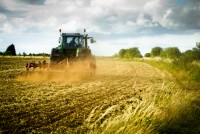Farming Safety
 The farming industry is one of the most integral to Australia, but it’s also one that is rife with potential hazards that can put the lives of even the most experienced farmers in danger.
The farming industry is one of the most integral to Australia, but it’s also one that is rife with potential hazards that can put the lives of even the most experienced farmers in danger.
The number of unintentional deaths that occur on farms account for almost 16% of all work-related deaths across all Australian industries. While such statistics may be confronting, many of these work-related risks that can lead to injury or death can be reduced by both knowing what risks exist and the steps you can take to make them less problematic.
Below is a list of some of the key health risks that farming can present;
- Animals – injuries inflicted by animals, including bites, kicks, crushing, ramming, trampling, and transmission of certain infectious diseases such as giardia, salmonella, ringworm and leptospirosis.
- Chemicals – be careful around pesticides and herbicides as they can cause injuries such as burns, respiratory illness or poisoning.
- Confined spaces – areas such as silos, water tanks, milk vats and manure pits may contain unsafe atmospheres, which can cause poisoning or suffocation – some may even present possible crushing hazards if not operated correctly
- Electricity – dangers include faulty switches, cords, machinery or overhead power lines.
- Heights – falls from ladders, rooftops, silos and windmills are a major cause of injury; both temporary and permanent
- Machinery – machinery-related hazards can include tractors without roll-over protection structures (ROPS), power take-off (PTO) shafts, chain saws, augers, motorbikes and any machinery with unguarded moving parts.
- Noise pollution – noise from livestock, machinery and guns can affect your hearing.
- Vehicles – a crash or fall from motorbikes, two-wheel and quad bikes, tractors, utes and horses can result in major injuries.
- Water – drowning can occur in as little as five centimetres of water. Dams, lakes, ponds, rivers, channels, tanks, drums, creeks, and aforementioned water tanks are all hazards. Young children are particularly at risk.
- Weather – hazards include sunburn, heat stroke, dehydration and hypothermia.
Managing farming-related risks
Some initial basic steps you can take to reduce risks around the farm include:
- Regularly walk around your farm and assess potential dangers. When you identify specific dangers, note down what can be done to eliminate or mitigate them.
- To keep children safe and away from hazards, create a contained play area where they spend their time and be occupied.
- Everyone who works on your farm should be made fully aware of all farm risks during orientation and should also be certified in first aid.
- Make sure all of your equipment is in good condition. If any isn’t, have it repaired/replaced ASAP.
- Store dangerous items such as machinery, firearms and chemicals behind locked doors and remove keys to a safe place.
- Devise ways to improve safety, such as fitting roll-over protection (ROPS) and seatbelts to tractors, or replacing dangerous chemicals with less toxic varieties.
- Document when injuries and/or near-misses occur. By having this information logged, you’ll be able to identify if there are specific problem areas and devise ways to resolve them.
- Consult with other farm workers and family members on how to improve safety.
- Write a safety plan together with fellow farm workers and family members, making sure to include ways to identify hazards and minimise potential risks.
- Always use appropriate safety equipment, such as machinery guards and shields, helmets, gloves, goggles, breathing apparatus, etc.
- Make sure everyone understands and uses outlined safety procedures; especially children.
- If using four-wheel motorbikes, make sure you are using them in line with the recommendations – remember they are not all-terrain vehicles.
This is only a general list of possible safety measures you can take. We cannot emphasise enough the importance of knowing where the hazards on your farm lie and setting up procedures on how to fix or mitigate them.
